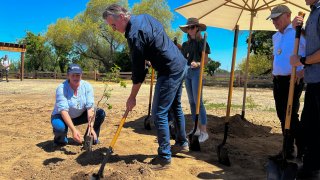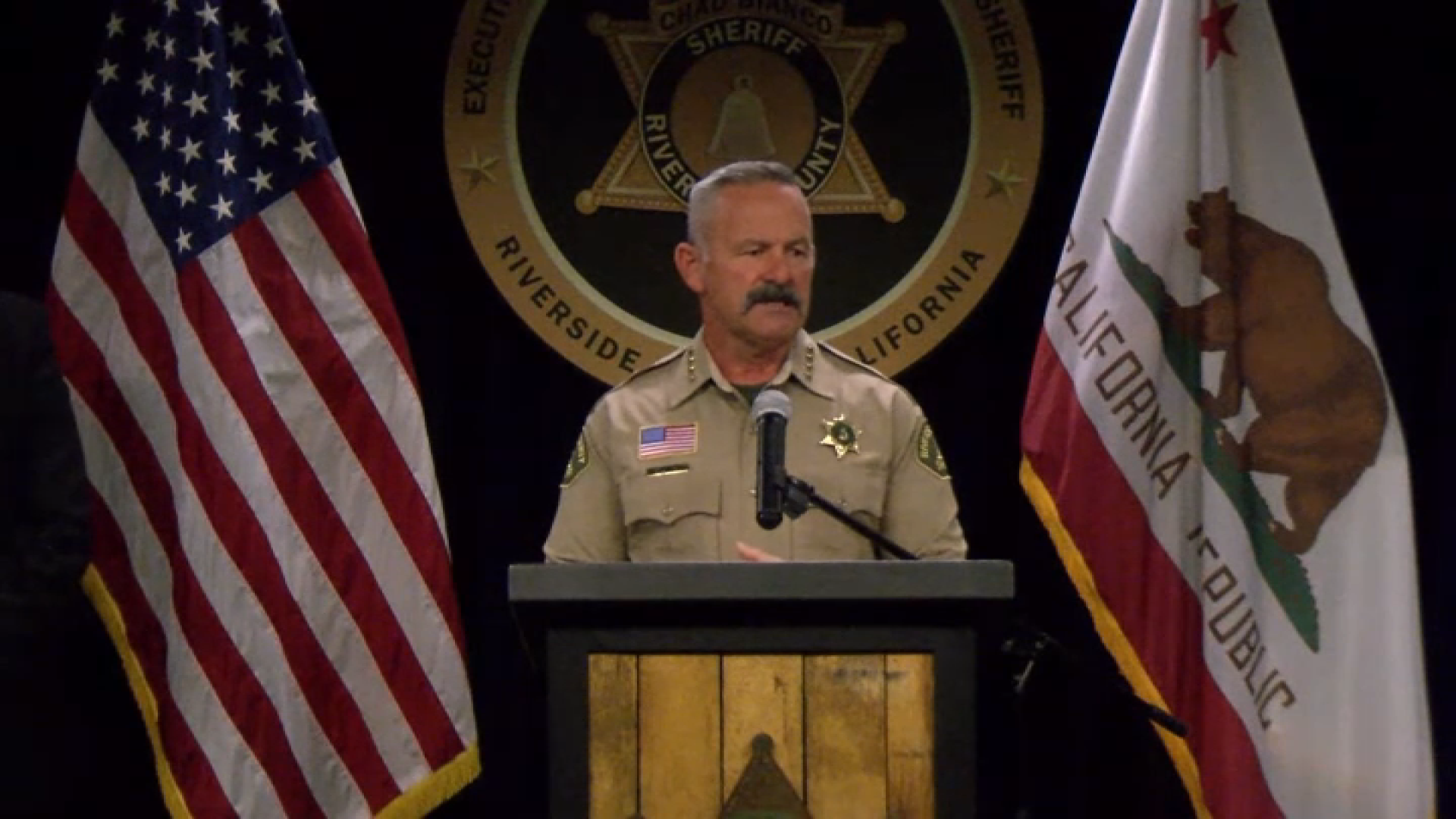
California will open its first new state park in a decade this summer, Gov. Gavin Newsom and state officials announced Monday, as the state sets targets for cutting planet-warming emissions on natural lands.
The 1,600-acre Dos Rios tract in the state's crop-rich Central Valley is set to open June 12 as California's 281st state park. Located near the confluence of the Tuolumne and San Joaquin rivers, it is surrounded by vast almond orchards and dairy pastures. Californians will be able to use the park for hiking and picnicking, with plans for swimming and boating access in the future.
Ali Manzo, a Central Valley native and California State Parks interpreter, said the new park will help bring people together and allow them to develop a deeper respect for nature.
“Dos Rios is not just a park," Manzo said. "It's a community treasure that offers peace, adventure and a vital connection to nature.”
Get top local stories in San Diego delivered to you every morning. >Sign up for NBC San Diego's News Headlines newsletter.
Manzo joined the governor, First Partner Jennifer Siebel Newsom and civil rights icon Dolores Huerta to announce the new park.
The Earth-Day announcement comes as Newsom unveiled new targets for cutting greenhouse gas emissions on natural lands. The plan sets out to reduce the risks of wildfires, expand forest cover and restore wetlands. Newsom said the targets would move the state closer toward achieving its mandate of carbon neutrality, meaning it will remove as many carbon emissions from the atmosphere as it emits, by 2045.
“These are stretch goals, unquestionably,” the Democratic governor said. “The good news is we're making real progress.”
California
Newsom did not say what success would look like for implementing the targets. His administration did not release an estimate for how much the plan would cost the state, which is facing a massive projected budget deficit.
The targets come out of a law Newsom signed in 2022 requiring the state Natural Resources Agency to work with other agencies to create a plan to reduce emissions from natural lands.
The plan aims to reduce the risks of wildfires across nearly 53,000 square miles (138,000 square kilometers) of land by 2045 through methods that include burning vegetation that can make wildfires more intense. The state also plans to plant 4.2 million trees, manage and restore 1.6 million acres (647,000 hectares) of grasslands, and protect more than 233,000 acres (94,000 hectares) of wetlands and seagrasses along that timeline.
California has spent about $9.6 billion since 2020 on efforts address climate change using the state's natural lands.
Natural Resources Secretary Wade Crowfoot called the plan “a big deal” because the state has focused much of its climate policy on reducing emissions from other areas, such as the energy sector, and less so from natural lands.
“We know we have to reduce pollution significantly, but we also need to improve the health of our landscapes to actually remove carbon dioxide from the air,” Crowfoot said.
In recent years, the state has approved the eventual phasing out of the sale of new fossil fuel-powered cars, lawn mowers, large trucks that transport goods through ports and trains powered by diesel.



